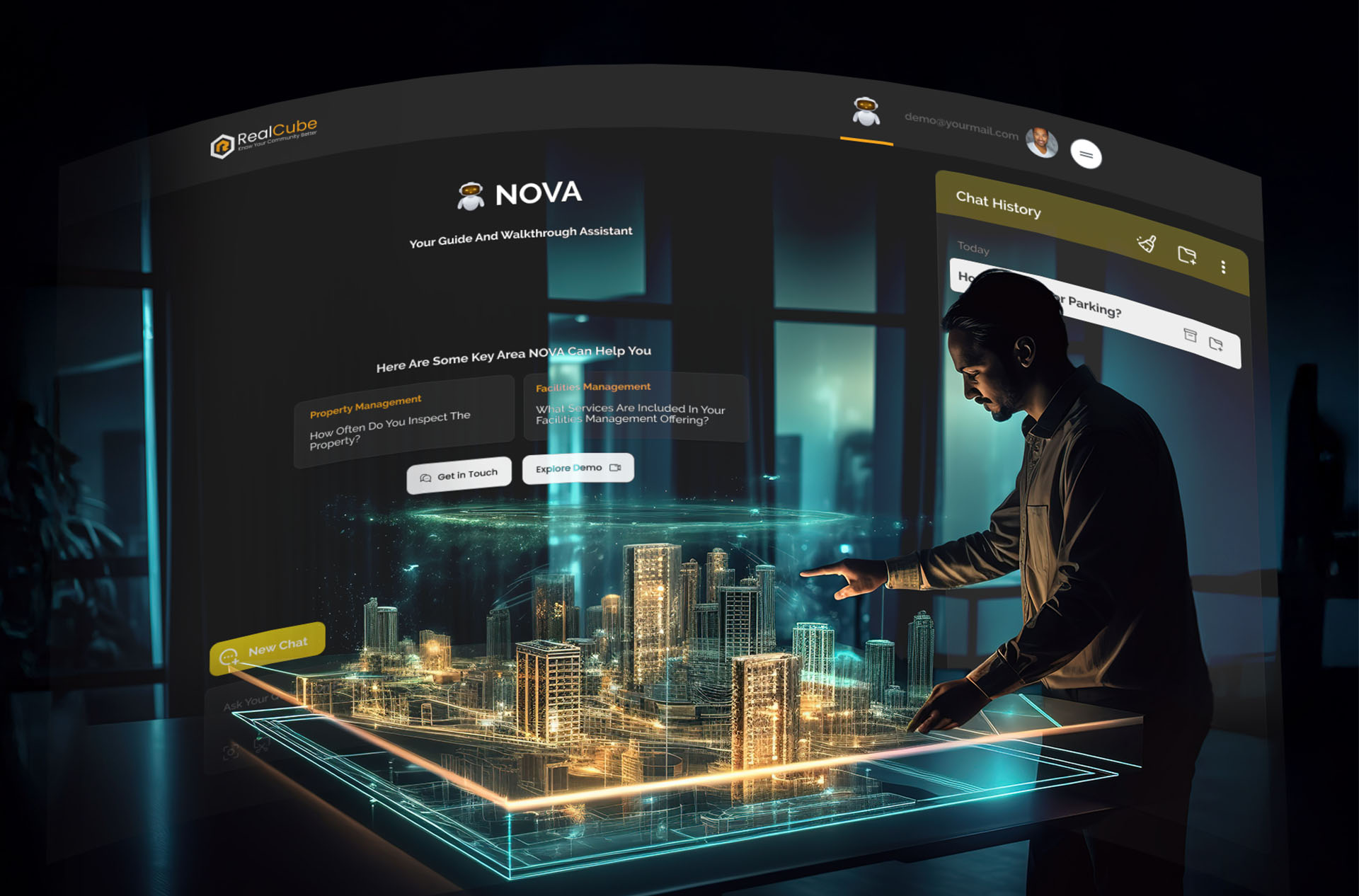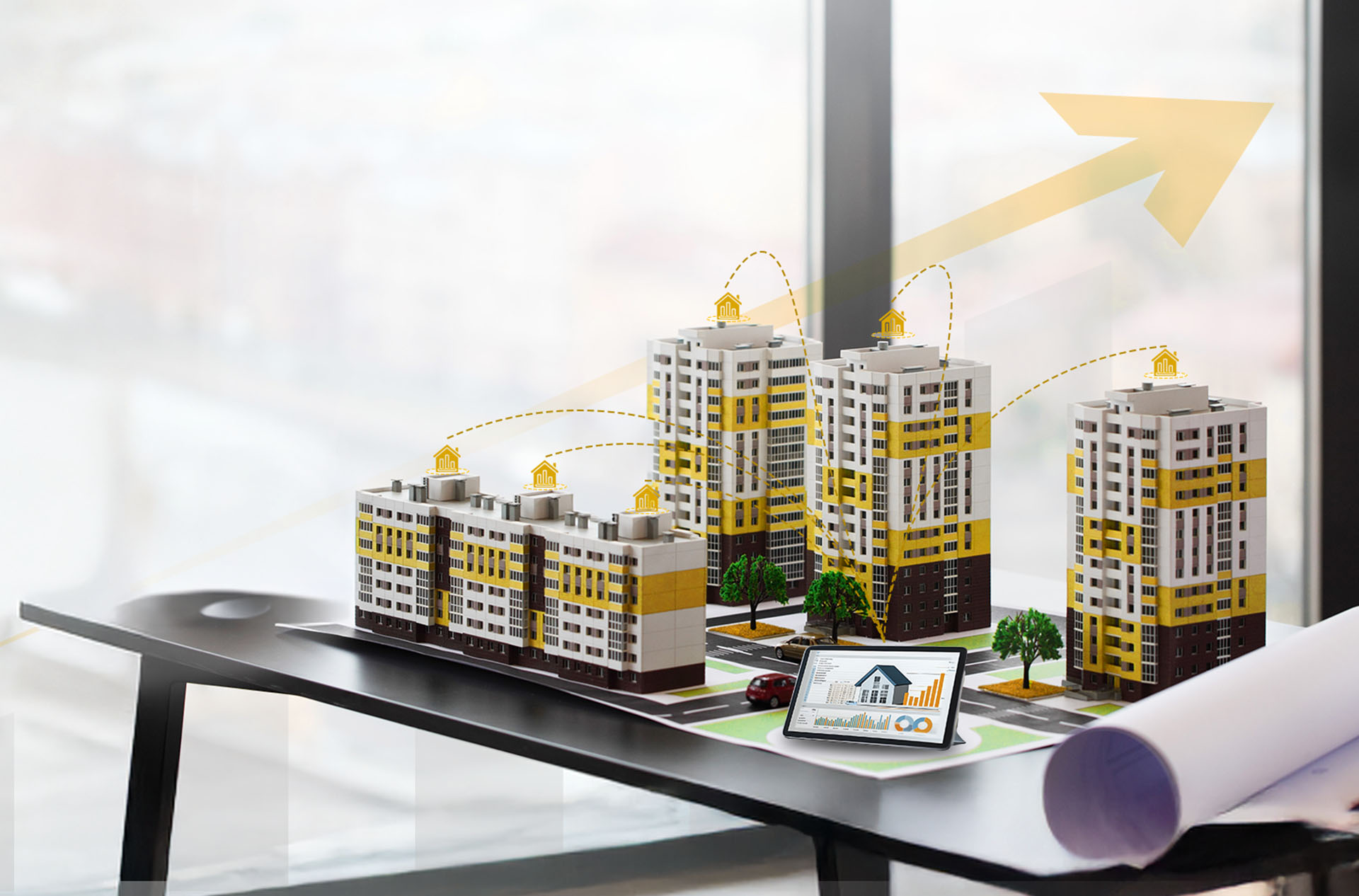


Top 2025 Property Tech Trends to Watch
1. Artificial Intelligence (AI) and Machine Learning in Real Estate
AI and machine learning are already making a substantial impact in real estate, and by 2025, they will become even more entrenched in property tech. From property valuation and market analysis to predictive maintenance and tenant management, AI is transforming how property data is processed and leveraged.
2. Smart Buildings and IoT Integration
As cities become smarter, buildings are getting “smarter” too. The Internet of Things (IoT) enables devices within buildings to communicate, optimizing everything from energy usage to maintenance schedules. This smart infrastructure creates better living environments while reducing operating costs.
3. Blockchain for Property Transactions
Blockchain technology is transforming how property transactions are conducted, providing transparency, security, and speed. It simplifies the buying, selling, and renting processes, eliminating the need for intermediaries and reducing the time it takes to complete transactions.
4. Virtual and Augmented Reality (VR/AR) in Property Tours
Virtual and Augmented Reality are revolutionizing the way potential buyers or renters experience properties. Virtual tours powered by VR are becoming the norm, allowing users to explore properties remotely from the comfort of their homes. AR, on the other hand, allows users to visualize how spaces will look after renovations or interior design changes.
5. Sustainability and Green Building Technology
As the demand for eco-friendly buildings rises, sustainability will remain a key driver of innovation in real estate. Green building technologies that focus on energy efficiency, waste reduction, and sustainable construction practices are gaining traction across the globe. By 2025, these technologies will be deeply integrated into the development and operation of residential and commercial spaces.
6. Big Data and Analytics for Real Estate Investment
Big data has become a crucial asset for making informed decisions in real estate investments. By 2025, data-driven insights will be used not just for analysis but to shape the entire real estate market, offering more accurate predictions and helping companies better understand consumer behaviors and market shifts.
How PropTech Startups Can Adapt to These Trends
Conclusion: Embrace the Future of Real Estate with PropTech
For PropTech analysts and real estate startups, the year 2025 marks an exciting time of transformation and innovation in the industry. With AI, blockchain, smart buildings, and big data leading the charge, the opportunities are immense. By staying informed about these emerging trends and adapting to new technologies, professionals in the real estate sector can position themselves at the forefront of change.
The future of property tech is here, and it’s driven by cutting-edge technologies that will not only enhance the way real estate operates but also create new opportunities for growth, sustainability, and efficiency. By embracing these innovations, PropTech startups and analysts can build a more agile, intelligent, and profitable future for the real estate industry.

The Digital Shift in Real Estate Strategy The real estate industry is undergoing a profound shift. Traditional…

As property management companies expand into new regions, scaling operations while maintaining efficiency…

The world of real estate is undergoing a massive transformation, driven by the rise of artificial intelligence…

As cities around the world grow and change to meet new challenges, the "smart city" trend has changed…

In the property management and real estate development space, one overlooked permit, expired document,…

In today’s fast-paced, document-heavy world, effective document management is crucial for any organization,…

Data is one of the most important resources for any business in the modern digital era, particularly…

Property management solutions are now crucial for guaranteeing seamless operations in the real estate…

In the dynamic, fast-paced world of community management, keeping in touch with locals is essential.…

Introduction: Change Driven by Clients, Crisis & Culture The real estate landscape is under…